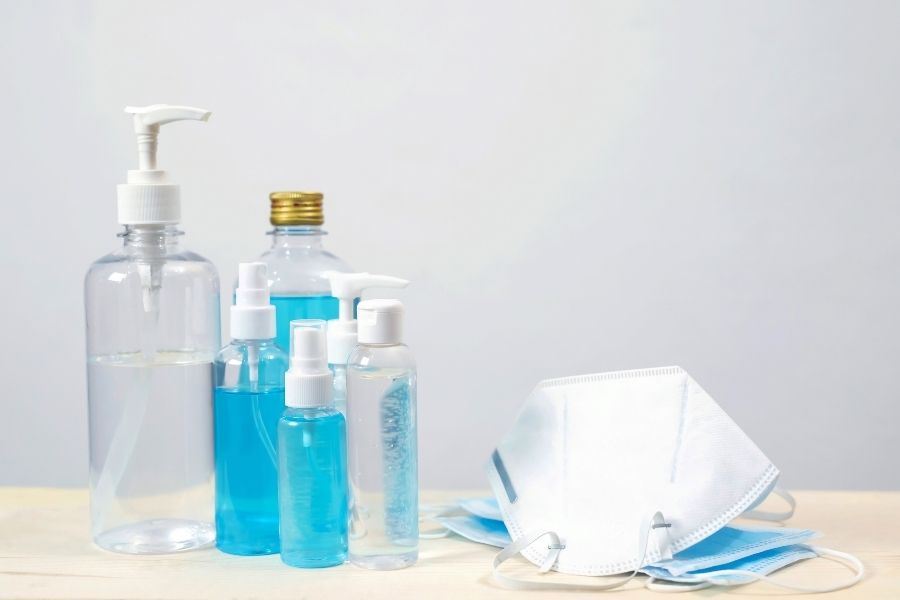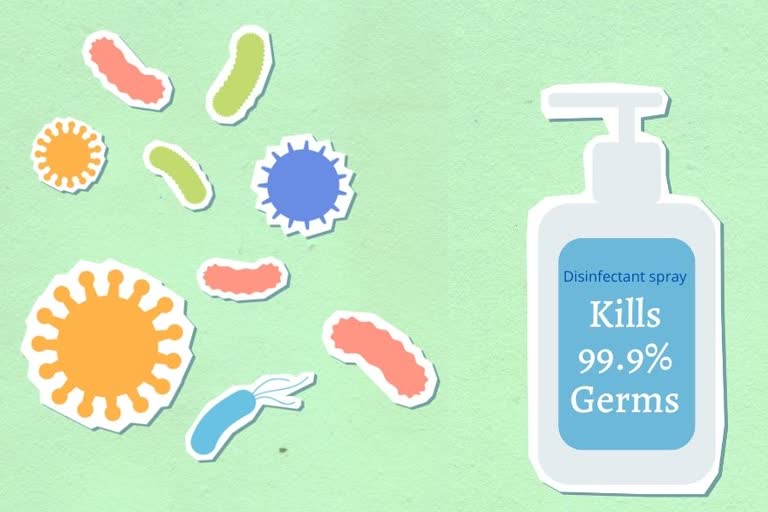Preventive hygiene products including sanitizers and handwashes, home care products like floor and toilet cleaners, come with a disclaimer that they kill 99.9 percent, or 99.99 percent, of common bacteria and fungi. We have seen it in ads, read them on labels ad nauseum.
A claim such as 99.99 percent germ kill may not be a plausible promise that many products can actually keep when it comes to their performance across various types of germs like bacteria, viruses, fungi, and spores. While products can be 99.99 percent effective on one type of germ may not be effective on others that are tough to disinfect.
Some of the most popular products carrying this claim are effective on only a small spectrum of germs and pathogens. The proof comes in the form of a fine print somewhere on the container that lists the germs a product actually kills. And this list may or may not include some or all of the viruses. This means the spectrum of 100 percent is a limited one, to begin with.
Not all disinfectants and medical fluids are created equal. Contrary to popular belief, disinfectant solutions may differ from each other in many different ways. They may also have different efficacy claims and dilution ratios. The most common disinfectant solutions used for facility maintenance or deep germ kill action are composed of active ingredients like sodium hypochlorite (bleach), quaternary ammonium (quat), hydrogen peroxide, silver ions, alcohol or acids, iodine, etc. Each of these has its own germ-ridding characteristics, and when mixed with other compounds to be made into a solution, they may be effective on different strains of pathogens.

So, what should you look out for?
- Look for third-party certifications, Products certified by an independent testing facility, preferably ISO-affiliated, are unlikely to be able to claim something they do not deliver on. These details can be found on the labels of the products you pick. Go beyond ads and top-line claims, read the small print and engage before you purchase.
- Be conscious of the usage scenario, When picking a product, look for active ingredients responsible for disinfection. Brands like Domex Surface and Floor Disinfectant have Sodium Hypochlorite as an active ingredient. It is one of the most powerful disinfectants available and works on a broad spectrum of germs like bacteria (both gram-positive and gram-negative), viruses (both enveloped viruses and more difficult to disinfect non-enveloped viruses), fungus and spores. The various scientific literature confirms that Sodium hypochlorite is fast-acting and unaffected by hard water.
- Be wary of products that try to do more than one job, 8/10 times products that try to sell themselves as a freshening and disinfecting agent combined into one may be diluted, thereby less effective versions of products that focus on one core premise.
- Read up on the technology/science the product is using to make it happen.
- Product description sections on e-Commerce platforms, labels or the product website are good places to go searching for this information.
The use of disinfecting agents is important, especially at a time when everyday hygiene is of absolute significance. However, it is imperative that we take a moment to assess the product specifics, and its certifications to truly judge efficacy. As consumers, we should be cognizant of what we are paying for at the end of the day.
(IANS)
Also Read: 5 Ways To Adopt Sustainable Living



